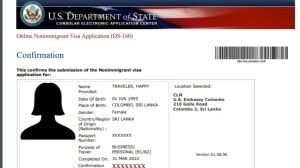By Biplab Lenin
In the rapidly evolving landscape of India’s pharmaceutical and healthcare sector, trust is more than a fundamental value-it is the currency upon which both industry success and public health rest. With rising public awareness and scrutiny, regulatory bodies and healthcare companies alike are under increased pressure to maintain rigorous standards and foster cooperation. Unfortunately, a recurring disconnect between regulatory intent and execution has led to a patchwork of enforcement and compliance. Trust, then, is not just a by-product of good practices but the bedrock of a resilient healthcare system, calling for a reimagined approach to audits, cooperation, and accountability across all levels.
The Trust Deficit in Pharma Regulation: A Call for Consistency and Accountability
Over the years, instances of regulatory lapses have chipped away at public confidence in the healthcare sector. Regulators, despite holding significant influence, often miss the mark in maintaining consistency in audits and enforcement. For example, pharmaceutical licenses are issued, but follow-up checks remain infrequent and sometimes cursory. When discrepancies arise, enforcement often defaults to penalizing the licensee, treating regulation more as a formality than as an ongoing partnership. This approach risks making the regulatory process reactive rather than preventive.
The need for a proactive, transparent audit process has never been clearer. A recent survey by the Indian Pharmaceutical Alliance highlighted that nearly 60% of healthcare professionals feel that while regulations exist, their uneven enforcement undermines their efficacy. Regulators must revisit their role-not merely as overseers but as collaborative partners committed to protecting public health.
Strengthening State-Center Cooperation: Bridging Gaps in Enforcement
India’s complex regulatory landscape is managed through a multi-layered system involving both central and state authorities, each with distinct powers and responsibilities. However, inadequate communication and misaligned objectives between these entities can result in a fragmented system where standards differ significantly across states. For instance, certain states have stricter guidelines for drugs approvals than others, leading to discrepancies in the quality and availability of healthcare products across regions.
A stronger, standardized audit framework, combined with cross-state coordination, could streamline procedures and unify standards. An annual collaborative audit report by central and state bodies could help harmonize compliance and promote transparency. By unifying their efforts, regulators can minimize discrepancies that hinder national healthcare outcomes, while companies gain the clarity they need to comply with a more predictable, consistent system.
Corporate Accountability: Compliance as the Foundation of Trust
While regulatory bodies play a pivotal role, companies, too, bear the onus of fostering public trust through rigorous internal quality control. Following regulations should not be viewed as a box-ticking exercise; it’s a commitment to safeguarding patient well-being and an investment in long-term credibility. Pharmaceutical organizations and healthcare providers must commit to stringent compliance, especially as the industry grows rapidly and global competition intensifies. Internal audits, regular staff training, and a culture that values compliance as an ethical duty are essential steps toward ensuring adherence to standards.
In recent years, instances of product recall due to quality control lapses have highlighted the ongoing need for stringent regulatory compliance in the healthcare sector. Such cases underscore the importance of proactive quality assurance measures to prevent issues like contamination from reaching consumers. Such incidents highlight the importance of companies building trust from within, instilling a culture that prioritizes ethical responsibility over profits. Through transparent communication and accountability, companies can assure consumers that their commitment to safety is unwavering.
Moving Towards a Trust-Based Future in Pharma and Healthcare
As India’s healthcare sector continues to expand, the importance of trust, as a foundational currency, cannot be overstated. Regulatory bodies must step into the role of transparent collaborators, while healthcare providers must embrace compliance as a commitment to their consumers. By strengthening audits, enhancing cooperation between central and state authorities, and fostering a culture of responsibility within companies, India’s pharma and healthcare industries can elevate standards, building a healthcare system that is both accountable and resilient.
Trust, then, is not merely a byproduct of good practice-it is the backbone of a sustainable, dependable healthcare system. By committing to shared standards, transparent practices, and a collaborative mindset, India’s healthcare industry can truly deliver on its promise to millions who depend on it.
(The author is a partner at Cyril Amarchand Mangaldas. Views expressed are the author’s own and not necessarily those of financialexpress.com.)








